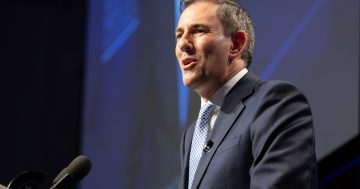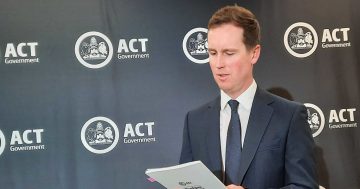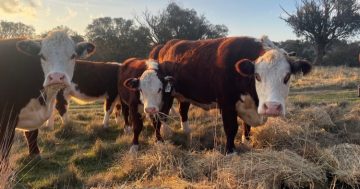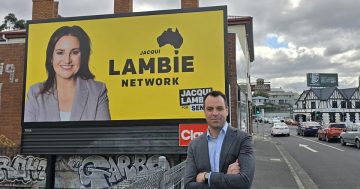David Taylor* says despite the best GDP growth in years, some leading economists believe Australia is now vulnerable to an extremely sharp downturn.

Photo: Lightboxx
As the economy reaches its economic zenith, a leading economist warns the next recession is already in view.
The latest economic growth figures show the Coalition’s “jobs and growth” tagline is now very much a reality.
Since the Coalition formed Government, more than one million jobs have been created and the economy’s growth rate — at 3.1 per cent — is the envy of the world, sitting at the top of the G7 economic leader board.
Chief Economist at the Australian Bureau of Statistics, Bruce Hockman points out: “Growth in exports accounted for half the growth in GDP, and reflected strength in exports of mining commodities.”
The data show strong contributions from the production of coal, iron ore and liquefied natural gas.
And earlier last week the Reserve Bank of Australia (RBA) noted business and government spending were supporting the economy.
It’s all worthy of popping the champagne corks.
But any buzz soon gives rise to feelings of nausea if the latest warnings from some of the country’s leading economists are to be believed.
Economy warning bells sound
Stephen Walters from the Australian Institute of Company Directors (AICD) and AMP Capital’s Shane Oliver fear this is as good as it’s going to get.
They also warn the economy’s now vulnerable to an extremely sharp downturn.
You see, roughly 60 per cent of Australia’s economic output comes from households, or the consumer.
Yet in last week’s figures, consumer spending contributed just 0.18 percentage points to the 1 per cent quarterly growth figure.
That’s less than one-fifth.
The data show shoppers are gradually spending less and less, and the concern is that will continue.
The RBA’s Governor said as much following last Tuesday’s interest rate decision.
The statement read: “One continuing source of uncertainty is the outlook for household consumption.”
“Household income has been growing slowly and debt levels are high.”
Concern over household debt
The AICD points out that, over the next few years, it’s the enormous amount of debt households are carrying that’s concerning.
Especially, it warns, with the looming threat of rising interest rates, and falling property prices.
“It’s quite a complicated narrative,” Mr Walters says.
“Remember, the Aussie banks don’t just fund themselves domestically, but they’re active in offshore markets, including short-term money markets in the US.”
“So, as the Reserve Bank has made clear, those interest rates in the US are going up, so that means the funding costs for Australian banks are also going up.”
“The problem with that is that it’s probably going to feed through into mortgage rates [here].”
Households exposed
Economists fear Australians will be caught out by unexpected interest rate rises.
“It’s certainly causing a bit of a squeeze in the household sector, and I think it’s why you’re seeing retail sales … [weren’t great],” Mr Walters says.
“The overall message is that households need to brace themselves over the next five years at least that interest rates will be going up.”
Mr Walters also warns household budgets are set to be further squeezed as pay rises go begging, and mortgage payments start rising.
“If you’re looking for a big pay rise over the next couple of years, I think good luck with that,” he says.
The AICD isn’t alone in its views.
In a recent note to clients, the world’s biggest hedge fund, Bridgewater Associates warned, “2019 is setting up to be a dangerous period for the global economy”.
So what’s ahead for Australia?
It seems absurd to talk about a recession after such a strong GDP result, but Mr Walters says it’s already in the making.
“I don’t know any mainstream Australian economist who’s forecasting a recession anytime soon,” he says.
“But often that’s the nature of recessions — they creep up on you when you don’t expect it.”
“Australia will have a recession at some point … it’s probably at least two years away.”
Offshore risks
There’s also no shortage of offshore economic risks.
There’s the potential for a marked slowdown in China’s economy, a political bombshell in Europe, and currency turmoil in emerging markets.
But it’s not all doom and gloom.
The hope is that Australia’s booming export sector, and strong business community, will help sustain the economy.
That is, until unemployment falls enough to boost wages.
The big question now is whether consumers can hang on until then.
Retail therapy
The ABC spoke to IT professional Romy Overbeke as she was browsing through a Sydney department store.
She’s been fortunate enough to get a pay rise or two over the past few years.
But now, she says, it’s time to tighten the purse strings.
“I want to save my money, and maybe invest it towards something,” she said.
“I’m starting to think about kids, starting to think about what could happen to the economy in the future.”
“I’d like to keep it to just the necessities, and then I’m happy.”
Ms Overbeke is typical of the kind of shopper the Retail Association worries about.
“The continued slide in the department store category shows no sign of abating, especially with its heavy reliance on clothing and footwear, which are also experiencing continual problems,” the Association’s Executive Director, Russell Zimmerman says.
“We are hoping that relief will be just on the horizon for retailers, with the application of GST to overseas purchases under $1,000 and potential income tax relief on the way from July 1.”
“Local retailers will finally be able to compete on a more level playing field once the GST changes come into effect, and we are hoping this will see consumers increase their spending in local stores.”
It’s complicated
There’s no denying the economy’s impressive performance over the past year, but it’s clear Australian consumers now need to take up the economic baton.
At the same time, in a climate of high personal debt, rising interest rates, and slow wage growth, consumers would be well served to be more thrifty.
It feels a little like an economic “checkmate”.
* David Taylor works across radio, television and online for the ABC. He tweets at @DavidTaylorABC.
This article first appeared at www.abc.net.au.











